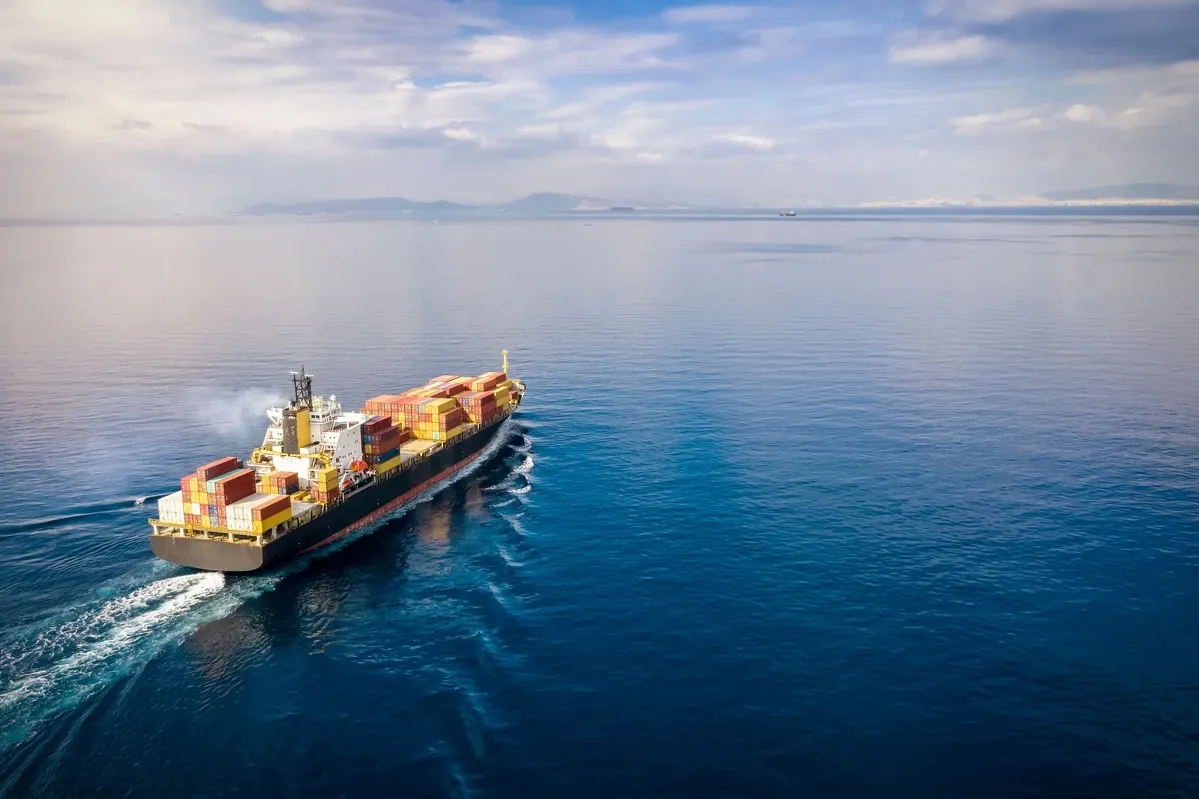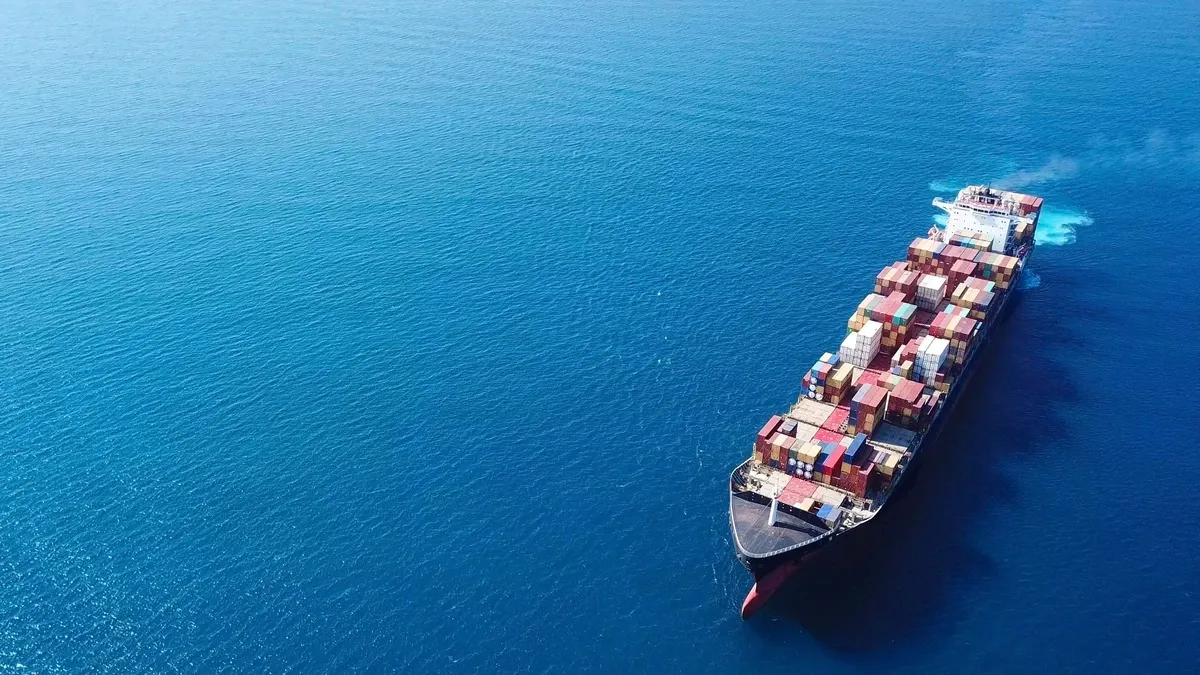A new, free step-by-step blueprint gives guidance on how to perform the initial pre-feasibility assessment of potential green corridors.
The framework is based on learnings from existing corridor projects and this tool provides a structured approach to collecting the necessary data and making the right analyses.
The Pre-Feasibility Blueprint is created as a contribution to the Green Hydrogen Catapult initiative by RMI and the Mærsk Mc-Kinney Møller Center for Zero Carbon Shipping.
Green corridors are key enablers of the green transition in shipping. Once operational, green corridors will:
- Contribute to the development of alternative fuel supply chains and offtake agreements
- Speed up the scaling process by offering real life demonstration of solutions and technologies
- Unite individual first mover actions across the value chain and develop new business models
A green shipping corridor is a collaborative effort, and the Pre-Feasibility Blueprint makes it easier to facilitate the needed dialogue between all parties to get a green corridor initiated.
The Blueprint kit consists of a seven-step framework that takes the initiator(s) through the required considerations around fuel supply readiness, port and infrastructure requirements, regulatory support, and cost calculations.
Based on this data the blueprint offers selection criteria for potential green corridor projects that should be explored further.
Along with the framework comes a toolbox in excel with readymade, prepopulated tables and tools.
This allows project owners to make calculations and overviews based on local data that will fast track decisions on how to proceed with the project.
“Green corridors are real climate action. They help break down the complexity of the transition into manageable projects and mature the solutions we need to establish green shipping on a global scale. It is a new way of collaborating across the value chain and with this blueprint we want to pass on our knowledge and best practice from existing projects to inform and inspire the creation of more green corridors,” said Johan Byskov Svendsen, Program Manager at the Mærsk Mc-Kinney Møller Center for Zero Carbon Shipping.
“Governments and industry are focusing on green shipping corridors to accelerate shipping decarbonization this decade. The challenge and opportunity is that we need to get 20 to 30 corridors around the world into active planning phase. The blueprint and materials developed by RMI and the Mærsk Mc-Kinney Møller Center for Zero Carbon are a crucial tool for decision makers, so they can chose the right corridors to focus on and we can start seeing these projects built,” said Oleksiy Tatarenko, Senior Principal in RMI’s Climate-Aligned Industries Program.
The Guide:
The Toolbox:
 Marine Regulations NewsMatko Rak
Marine Regulations NewsMatko Rak
The Mærsk Mc-Kinney Møller Center for Zero Carbon Shipping (MMMCZCS) is an independent, not-for-profit research and development center. We were established in 2020 with initial funding from the A.P. Moller Foundation. Our purpose is to guide and accelerate decarbonization of the global maritime industry. This complex challenge requires unprecedented collaboration across sectors, industries, and geographies, so we work with partners, governments, authorities, public sector bodies, scientists, and organizations from across the maritime industry and around the globe. We aim to inform, de-risk decision-making, and spark real climate action across the maritime industry. Our staff and partner secondees collect and assess data from our partners, academia, and commercial databases to support NavigaTE, our bottom-up techno-economic modeling tool. Our analyses are technology agnostic, and we have no vested interest in any specific decarbonization solution. We explore analyze free of commercial considerations and independent of partner strategies. As a result, we deliver independent analyses of how the transition is progressing and clear, data-driven recommendations for accelerating maritime decarbonization. For the transition to happen, industry action and regulatory reform must go hand in hand. Therefore, we also use the knowledge we develop to inspire and push for a coordinated and collaborative effort from both public and private stakeholders among industry leaders, scientists, regulatory bodies, and opinion leaders. We do much more than just model the transition and call for action – we help find solutions that can impact decarbonization. At the MMMCZCS, our experts and partner secondees work closely in integrated research project teams. Together, we are maturing solutions to the most pressing problems across the maritime value chain, from fuels to onboard solutions, regulations, and financing. Strategic Partners to the Center include: Alfa Laval, American Bureau of Shipping, A.P. Moller - Maersk, bp, Cargill, CF Industries, Equinor, DP World, Hapag-Lloyd, MAN Energy Solutions, Mitsubishi Heavy Industries, Mitsui, NORDEN, NYK Line, Rio Tinto, Royal Caribbean Group, Seaspan Corporation, Siemens Energy, Stolt Tankers, Sumitomo Corporation, Swire Group, Topsoe, TotalEnergies and V.Group.
RMI is an independent nonprofit founded in 1982 that transforms global energy systems through market-driven solutions to align with a 1.5°C future and secure a clean, prosperous, zero-carbon future for all. We work in the world’s most critical geographies and engage businesses, policymakers, communities, and NGOs to identify and scale energy system interventions that will cut greenhouse gas emissions at least 50 percent by 2030. RMI has offices in Basalt and Boulder, Colorado; New York City; Oakland, California; Washington, D.C.; and Beijing. More information on RMI can be found at www.rmi.org or follow us on Twitter @RockyMtnInst.
The Green Hydrogen Catapult is a global initiative convened with the support of the UN High Level Champions for Global Climate Action and hosted by RMI. It was founded and is led by a group of leading global industrials aiming to accelerate green hydrogen adoption at scale. Members include ACWA Power, ArcelorMittal, CWP Global, Fortescue Future Industries, H2 Green Steel, Mærsk Mc-Kinney Møller Center for Zero Carbon Shipping, Power-2-X, and Yara.










Related News
Canada: Bulletin on new and existing requirements for vessels
Apr 17, 2024
WSC: Updated joint Industry Guidelines released to prevent pest contamination of containers
Apr 16, 2024
IMO issues guidance for temporary storage of treated sewage and grey water in ballast water tanks
Apr 12, 2024